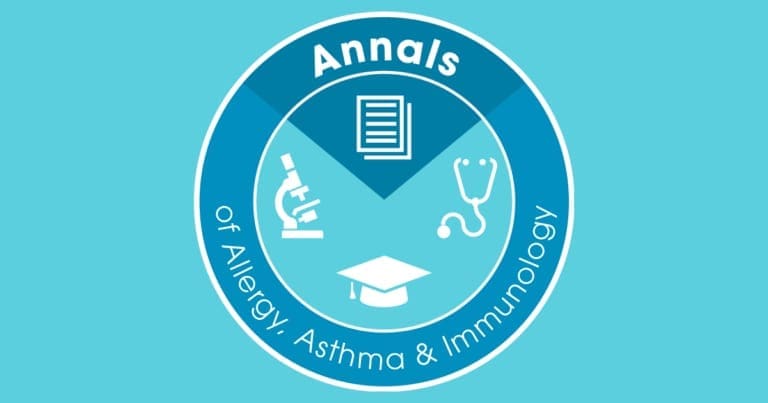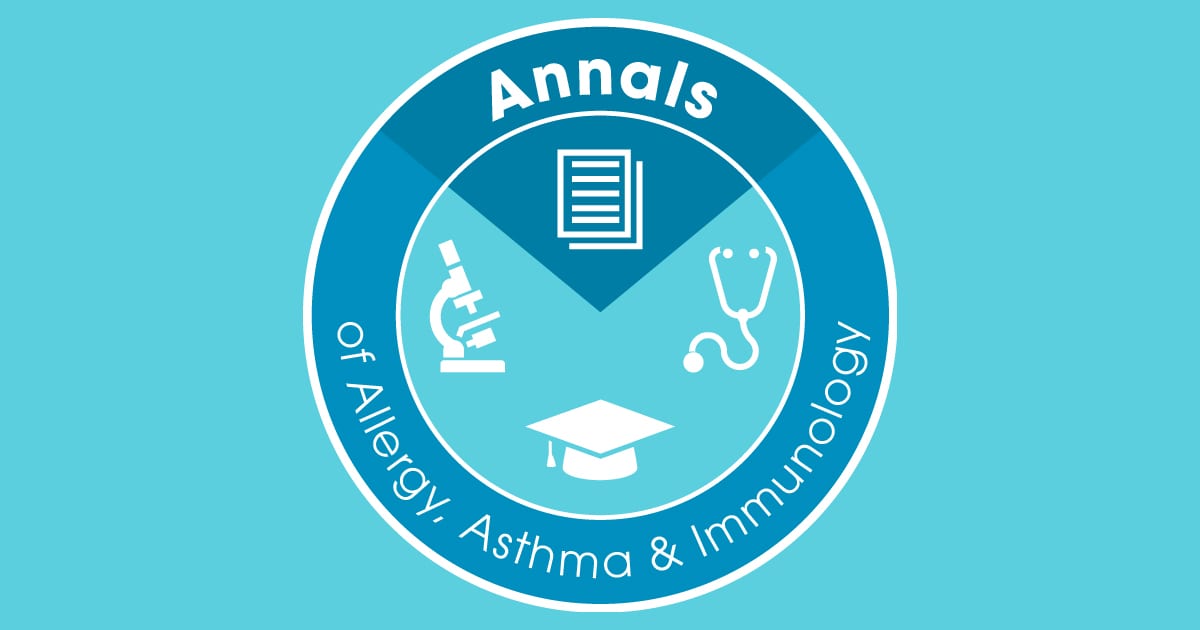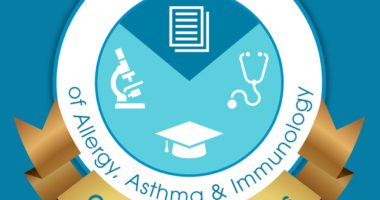As the new year starts, this month’s issue of Annals of Allergy, Asthma & Immunology contains editorials on articles that were featured during the College’s Annual Literature Review Course held during the 2022 Annual Scientific Meeting, which covered the last calendar year. Annals’ extensive literature reviews feature the best articles and are divided into 12 separate editorials in areas of allergy-immunology including food allergy, immune deficiency, asthma and more. The articles are great resources for catching up on major findings in the last year, and are highlighted by the “best of the best” articles.
The reviews in this issue cover two different types of drug allergies: immediate and delayed drug hypersensitivity. The first review focuses on classic immediate allergic reactions involving tryptase and type 1 hypersensitivity, with the article highlighting the use of tryptase as a biomarker for detetecting type 1 hypersensitivity and mast cell disease. The second review focuses on the more common delayed drug reactions, which involve cytokine release syndrome and IL-6.
The original research in this issue includes two articles that focus on dupilumab. The first shows its efficacy for asthma alone. The second studies efficacy in asthma with and without chronic rhinosinusitis and nasal polyposis and shows effectiveness regardless of secondary conditions. This efficacy indicates that biologics might be able to treat multiple atopic diseases at the same time.
An important article highlights the issue of food allergy prevention. The work from Lachover-Roth and colleagues examined a long-term study on almost 2,000 subjects using milk exposure to prevent milk allergy. Patients were divided into two groups: one strictly breast fed until two months of age and the other group fed cow’s milk formula for one serving daily. The breast fed group developed milk allergy in 3% compared to only 0.7% in the milk group. These data are consistent and supports the use of early introduction of foods to prevent food allergies.
As always, if you have any comments, please consider sending a correspondence to Annals (email us at annals@ACAAI.org). I am always excited to hear how Annals has helped you improve the lives of your patients!
Jonathan Spergel, MD, PhD, FACAAI
Deputy Editor


